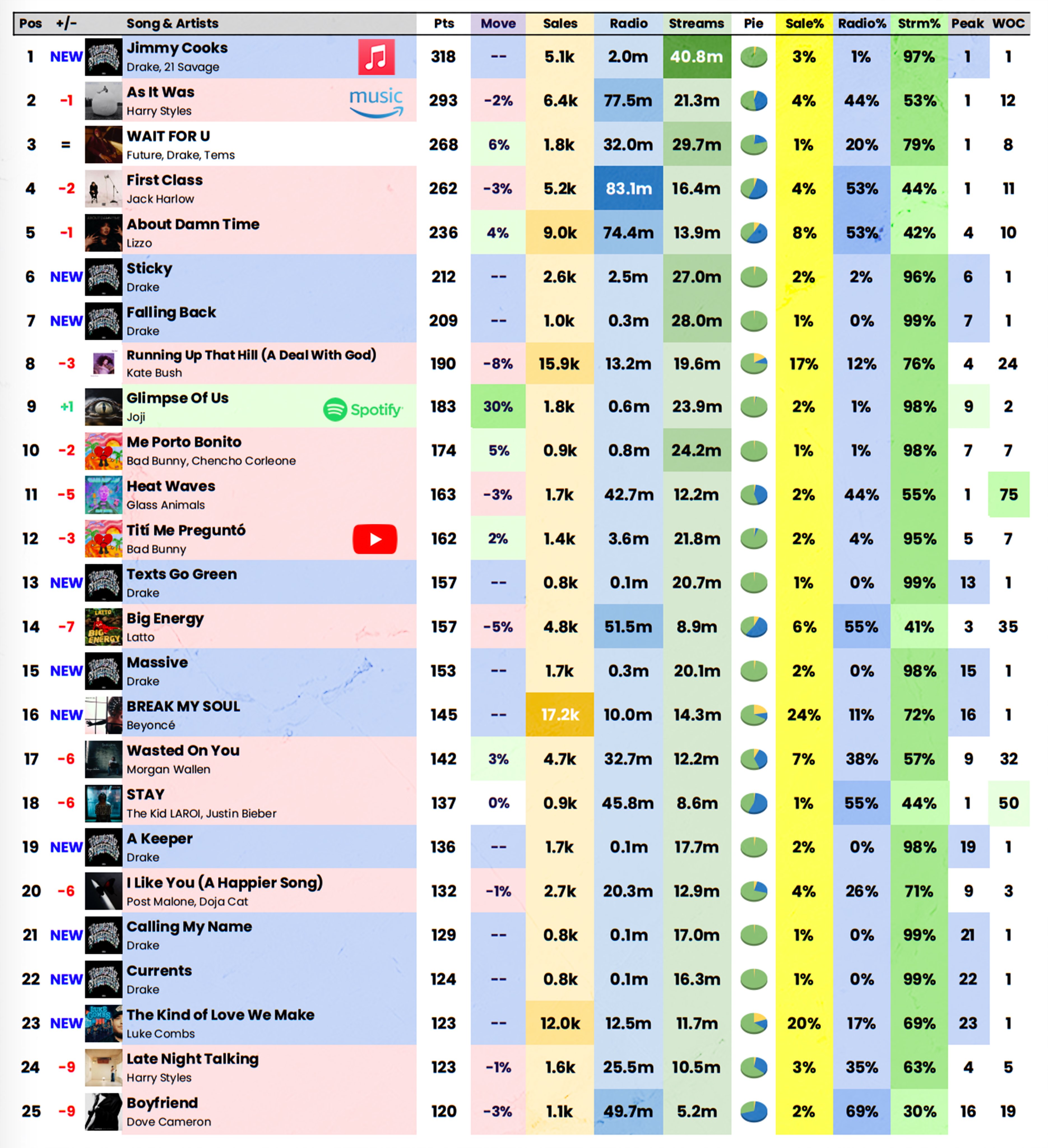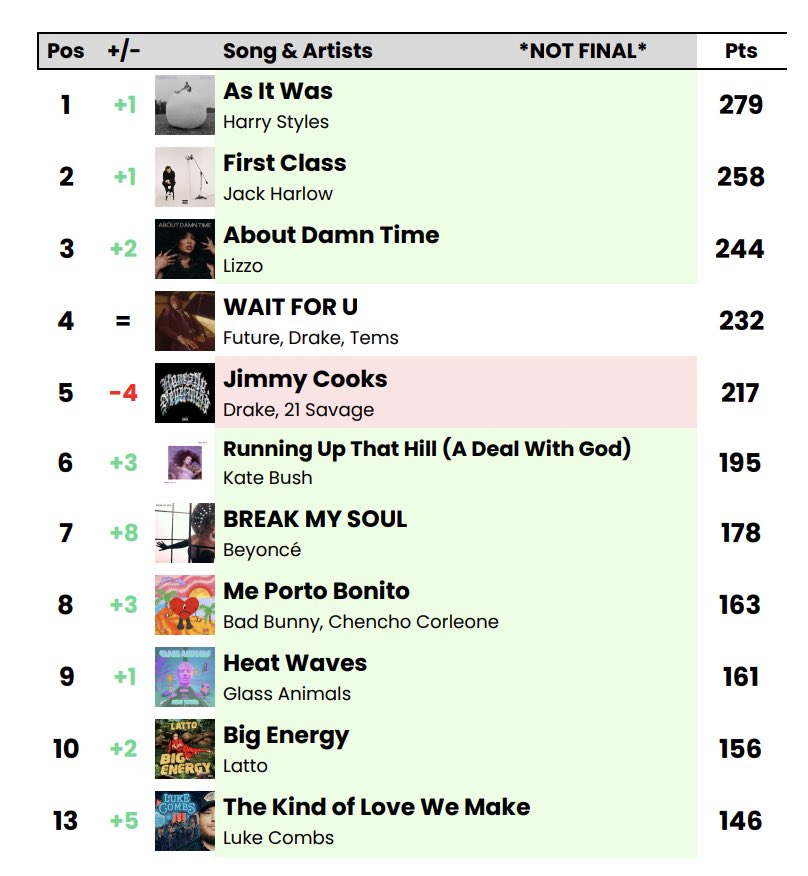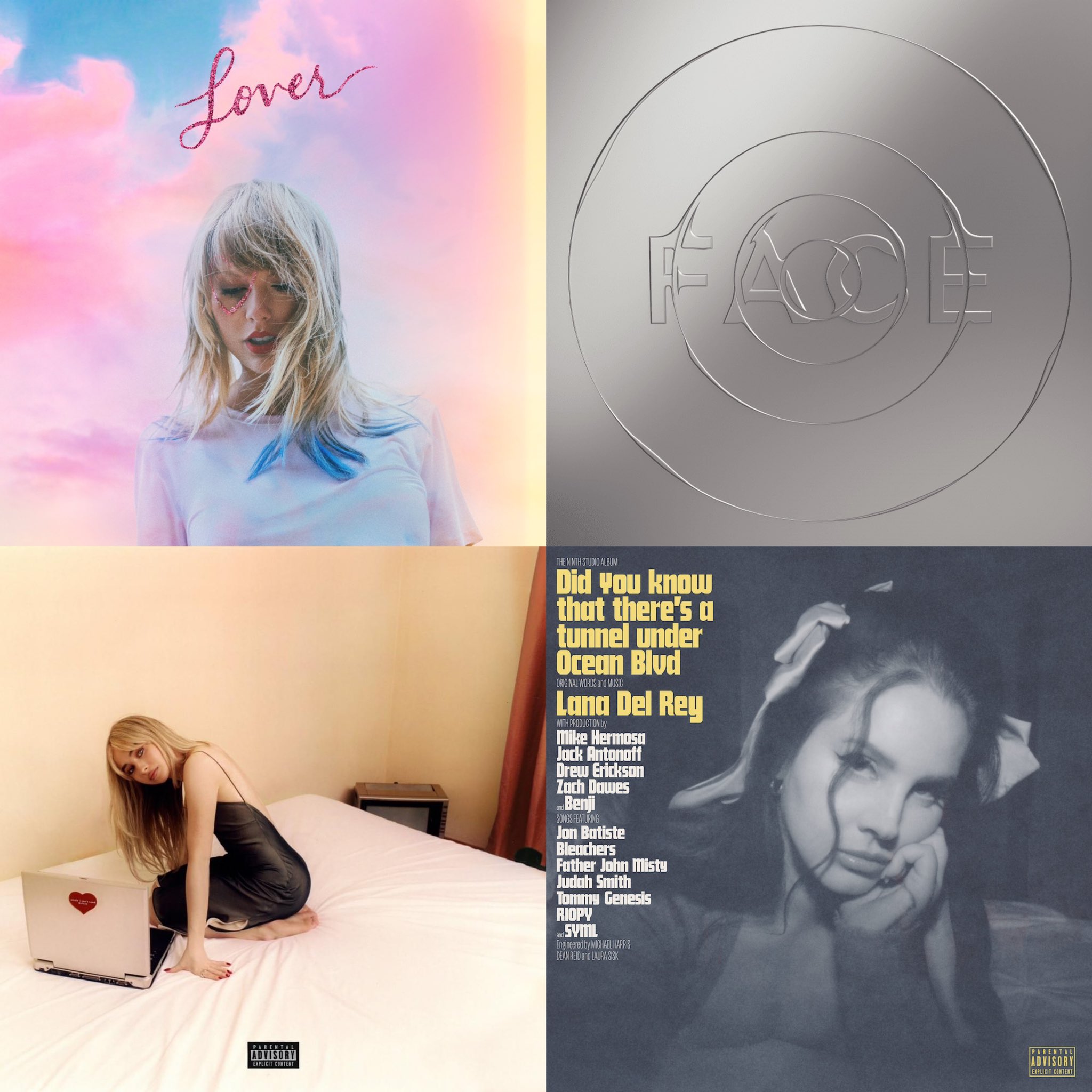Trending Now: Talk Of The Charts Twitter
Are you listening? The digital town square is abuzz, the algorithm is humming, and the 'talk of the charts twitter' is dominating the conversation. It's a phenomenon that shapes music trends, ignites fan wars, and even influences the trajectory of careers. This ever-shifting landscape, where fleeting opinions can become viral sensations, demands careful scrutiny. Forget the hushed pronouncements of traditional critics; the voices that truly matter now the collective consciousness of the internet, expressed in the ephemeral bursts of tweets, retweets, and shares are shaping the musical zeitgeist.
The very nature of music consumption has undergone a seismic shift. No longer are we beholden solely to record sales, radio play, or the carefully curated playlists of established media outlets. The democratizing power of platforms like Twitter has empowered fans to become active participants in the musical ecosystem. They are no longer passive consumers, but rather, they are the tastemakers, the gatekeepers, the ones who ultimately decide which artists rise and which fall. This digital agora, this swirling vortex of opinions and reactions, is the new frontier for musicians, and understanding its dynamics is paramount to success.
| Category | Details |
|---|---|
| Full Name | Anya Petrova |
| Stage Name | Nova |
| Date of Birth | March 15, 1995 |
| Place of Birth | Moscow, Russia |
| Genre | Electro-Pop, Synthwave |
| Instruments | Vocals, Keyboard, Synthesizer |
| Early Career | Started composing music at age 16; performed in local clubs. |
| Breakthrough | Debut single "Starlight" went viral on TikTok, generating significant buzz. |
| Major Albums | "Echoes of Tomorrow" (2021), "Nebula Dreams" (2023) |
| Awards/Nominations | Nominated for "Best New Artist" at the Electronic Music Awards 2022 |
| Social Media Presence | Active on Twitter (@NovaMusic), Instagram (@NovaOfficial), and TikTok (@NovaSounds). |
| Influences | Kraftwerk, Daft Punk, Grimes, CHVRCHES |
| Current Projects | Working on a new album; collaborating with several electronic music producers. |
| Reference Link | Wikipedia (Electronic Music) |
The impact of the talk of the charts twitter extends far beyond simple promotion. It's a dynamic space where narratives are constructed, reputations are solidified, and even crises can be managed (or exacerbated). A single tweet, a carefully crafted hashtag, or a well-timed viral thread can propel an artist from relative obscurity to global recognition. Conversely, a misstep, a poorly-worded comment, or a perceived slight can trigger a wave of negative attention that can be difficult, if not impossible, to overcome. This constant vigilance, the need to remain perpetually connected and responsive to the ebb and flow of online conversation, has become a non-negotiable aspect of the modern musician's existence.
Consider, for instance, the orchestrated campaigns that often precede a major album release. Artists and their teams meticulously plan their digital strategies, crafting teasers, snippets, and engaging content designed to generate maximum buzz on Twitter and other platforms. These efforts are not merely advertising; they are attempts to create a sense of anticipation, to build a community around the music, and to transform casual listeners into ardent fans. The goal is not just to sell records (though that remains a crucial metric), but also to cultivate loyalty, to foster a sense of belonging, and to ensure that the artist remains top-of-mind in an increasingly crowded marketplace. The most successful artists are those who understand how to tap into this collective energy, to harness the power of the crowd, and to transform their online presence into a self-sustaining engine of promotion and engagement.
Moreover, the 'talk of the charts twitter' plays a vital role in shaping the critical discourse surrounding music. While traditional reviews still hold some sway, the immediacy and accessibility of social media have created a parallel system of commentary and analysis. Fans dissect lyrics, analyze production choices, and debate the merits of different songs and albums in real time. This constant feedback loop, this ongoing conversation between artists and their audience, is invaluable. It provides artists with an unfiltered view of how their music is being received, and it allows them to adapt their strategies and refine their craft accordingly. This open exchange of ideas, this collaborative creation of meaning, is one of the defining characteristics of the digital age, and it's transforming the way we experience and appreciate music.
However, the influence of this digital echo chamber is not without its complexities. The potential for misinformation, the spread of negativity, and the amplification of divisive opinions are constant threats. Artists must navigate this treacherous landscape with caution, mindful of the potential for their words and actions to be misinterpreted or weaponized. The pressure to maintain a flawless online persona can be overwhelming, and the constant scrutiny can take a toll on mental well-being. The need for authenticity, for genuine connection, has never been more crucial. Fans are increasingly savvy, able to discern between genuine expressions of creativity and manufactured attempts at manipulation. Artists who prioritize honesty, vulnerability, and a commitment to their craft are more likely to thrive in the long run.
The rise of streaming services has further intertwined with the 'talk of the charts twitter' phenomenon. Spotify, Apple Music, and other platforms have created new avenues for artists to reach their audiences, and the algorithms that govern these services are heavily influenced by social media activity. Songs that generate significant buzz on Twitter, that are shared and discussed extensively, are more likely to be featured on popular playlists and to receive algorithmic promotion. This creates a feedback loop, where online conversation directly influences streaming numbers, which in turn influences chart performance. It's a symbiotic relationship, where the digital realm and the music industry are inextricably linked.
The speed at which trends emerge and disappear on Twitter is dizzying. A song that dominates the conversation one week can be forgotten the next, replaced by a new sensation or a trending meme. This ephemeral quality requires artists to be agile, to be adaptable, and to be constantly looking for new ways to connect with their audience. They must be willing to experiment, to take risks, and to embrace the unpredictable nature of the digital landscape. Those who fail to keep pace with the evolving trends risk being left behind. The constant need to innovate, to reinvent, and to remain relevant is a defining characteristic of the modern music industry.
The impact of "talk of the charts twitter" extends to various genres, but perhaps its influence is most acutely felt in the world of pop music, hip-hop, and electronic dance music (EDM). These genres, characterized by their reliance on trends and their focus on instant gratification, are particularly susceptible to the whims of the internet. A catchy hook, a viral dance challenge, or a well-timed collaboration can catapult an artist to superstardom. The artists who master the art of online self-promotion and cultivate a strong presence on Twitter and other platforms are the ones who are most likely to succeed.
The phenomenon also has profound implications for independent artists, who often lack the resources and infrastructure of major labels. For these musicians, social media can be a powerful tool for leveling the playing field, allowing them to connect directly with fans, build their own communities, and bypass the traditional gatekeepers of the music industry. By leveraging platforms like Twitter, independent artists can generate their own buzz, build their own audiences, and ultimately gain control over their own careers. The democratization of music distribution, facilitated by the internet, has created unprecedented opportunities for independent musicians to thrive.
However, it's crucial to remember that the 'talk of the charts twitter' is not a substitute for genuine talent or hard work. While social media can provide a platform for promotion and exposure, it cannot manufacture artistry. Artists who rely solely on online manipulation or gimmicks are unlikely to achieve lasting success. The foundation of any successful music career remains the quality of the music itself, the ability to connect with audiences on an emotional level, and the willingness to hone one's craft through dedication and perseverance. Social media is a powerful tool, but it is only one piece of the puzzle. True longevity in the music industry requires a combination of talent, dedication, and a deep understanding of the ever-evolving digital landscape.
Consider the impact of Twitter on music festivals. The anticipation, the live reactions, the shared experiences, all contribute to the narrative surrounding an event. Moments like surprise guest appearances, unexpected song choices, or backstage dramas are instantly amplified, generating a ripple effect that extends far beyond the physical confines of the festival grounds. These online conversations shape perceptions of the event, influencing ticket sales, artist bookings, and the overall cultural significance of the festival itself. The ability to harness this online energy is now critical for festival organizers.
Looking ahead, the evolution of the 'talk of the charts twitter' is likely to continue at a rapid pace. New platforms will emerge, algorithms will change, and the dynamics of online interaction will shift. Artists and industry professionals must remain vigilant, adapting their strategies and refining their approach to stay ahead of the curve. Understanding the nuances of online conversation, the importance of authenticity, and the power of community will be essential for anyone seeking to succeed in the music industry. The 'talk of the charts twitter' is not just a trend; its the future of music promotion, engagement, and critical discourse, offering both opportunities and challenges for artists and the industry as a whole.
The ability to understand and react to the "talk of the charts twitter" is no longer just an advantage; it is becoming a necessity. The conversation is constantly evolving, and artists, managers, and labels must evolve with it. From monitoring trends to crafting the perfect tweet, those who master this digital arena are positioned to thrive in the ever-changing landscape of music.
In essence, the 'talk of the charts twitter' functions as a multi-faceted ecosystem, a confluence of promotion, criticism, and fan engagement. It's a place where careers can be made or broken, where trends are born and die, and where the collective voice of the internet determines the trajectory of musical success. Understanding this phenomenon is no longer optional; it's the key to navigating the complexities of the modern music industry.


